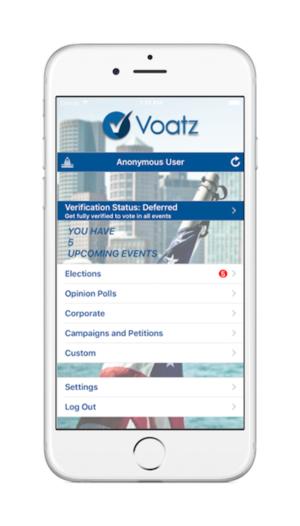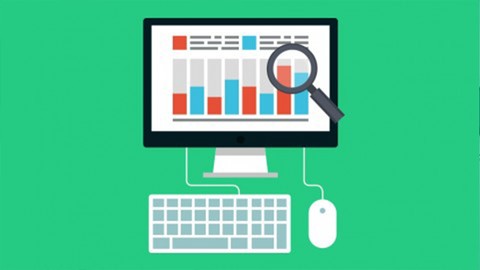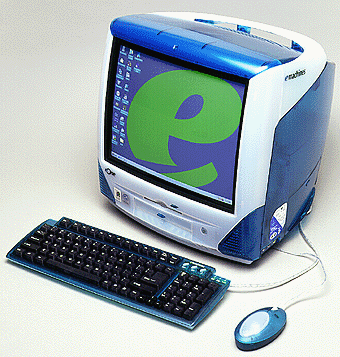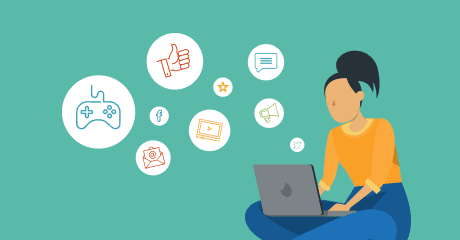Elections officials in quite a few states have piloted different mobile voting programs as a system of increasing accessibility to the polls, but MIT scientists say one particular of the additional preferred apps has stability vulnerabilities that could open up it up to tampering by lousy actors.
The MIT investigation of the application, known as Voatz, highlighted a selection of weaknesses that could allow for hackers to “alter, prevent, or expose how an individual user has voted.”
On top of that, the scientists located that Voatz’s use of Palo Alto-primarily based seller Jumio for voter identification and verification poses probable privateness challenges for buyers.
The examine will come on the heels this month’s problems-plagued Iowa Democratic Presidential Caucus, which applied an on line application to retailer votes but failed to do so accurately due to the fact of a coding flaw and inadequate screening.
Some stability gurus have long argued that the only safe variety of voting is paper ballots.
 Voatz
VoatzVoatz Apple iphone mobile voting application.
The Voatz mobile voting application has been applied in smaller pilots involving only about 600 voters complete in Denver, West Virginia, 5 counties in Oregon, Utah and Washington Point out, the place the principal concentration was on inclusivity for absentee voters residing overseas.
In response, Voatz called the MIT report “flawed” due to the fact it primarily based its investigation on a long-out-of-date Android edition of the application.
“Had the scientists taken the time, like nearly one hundred other scientists, to check and validate their claims using the newest edition of our system through our public bug bounty method on HackerOne, they would not have finished up generating a report that asserts claims on the basis of an erroneous system,” Voatz mentioned in a site post today.
“We want to be very clear that all nine of our governmental pilot elections done to date, involving less than 600 voters, have been done properly and securely with no described challenges,” Voatz mentioned.
West Virginia Secretary of State’s office pointed to a Department of Homeland Security stability evaluation of the 2018 Voatz pilots indicating there was “no risk actor behaviors or artifacts of previous nefarious routines ended up detected in the vendor’s networks.”
Audits of paper ballots developed by the Voatz plaform on election day also verified the results ended up precise, in accordance to the Secretary of State’s office.
“We want to get the word out to media shops like Computerworld to make sure WV voters that we are taking every single feasible precaution to equilibrium election stability and integrity with WV requirement to give absentee ballots electronically to overseas, armed forces and absentee voters residing with actual physical disabilities,” Mike Queen, deputy chief of staff for West Virginia Secretary of Point out Mac Warner, mentioned through e mail.
Voatz’s system makes use of a mixture of biometrics, this sort of as mobile-telephone primarily based facial recognition, and components-backed keystores to give conclusion-to-conclusion encrypted and voter-verifiable ballots. It also makes use of blockchain as an immutable digital ledger to retailer voting results.
Voatz has declined to give official information about its system, citing the want to shield intellectual home, the scientists mentioned in their paper.
In a site post currently, Voatz known as the researchers’ solution “flawed,” which “invalidates any claims about their capacity to compromise the all round method.
“In brief, to make claims about a backend server devoid of any proof or link to the server negates any diploma of reliability on behalf of the scientists,” Voatz mentioned.
The scientists also known as Voatz out for reporting a College of Michigan researcher who in 2018 done an investigation of the Voatz application. “This resulted in the FBI conducting an investigation in opposition to the researcher,” the MIT scientists mentioned.
It’s not the first time Voatz has been criticized for not staying additional open up about its technology. Last May perhaps, computer scientists from Lawrence Livermore Countrywide Laboratory and the College of South Carolina, along with election oversight groups, released a paper that criticized Voatz for not releasing any “comprehensive complex description” of its technology.
“There are at least four corporations attempting to offer internet or mobile voting answers for large-stakes elections, and one particular 2020 Democratic presidential prospect has involved voting from a mobile machine through the blockchain in his coverage plank,” the MIT scientists mentioned in their paper. “To our know-how, only Voatz has effectively fielded this sort of a method.”
Together with Voatz, Democracy Live, Votem, SecureVote and Scytl have all piloted mobile or on line voting technology in different public or personal balloting that involved business stockholder and university board elections. Most not too long ago, a Seattle district piloted the Democracy Live technology in a board of supervisors election that was open up to one.two million registered voters.
Tusk Philanthropies, a nonprofit focused on promoting mobile voting as a way to raise voter turnout, has delivered monetary guidance to aid governments implement mobile voting pilots, allowing the businesses to pick out the seller provider.
In a assertion to Computerworld, Tusk mentioned it feels confident in the results of all the pilot elections due to the fact it done independent, 3rd-celebration audits “which showed that votes solid more than the blockchain ended up recorded and tabulated accurately.”
“With that staying mentioned, we normally welcome new stability facts and will function with stability gurus to evaluate this paper,” Tusk mentioned. “Security is an iterative process that can only get far better more than time. There is no space for mistake in our elections, specially when it will come to data leakage, compromised encryption, broken authentication, or denial-of-provider assaults.”
Medici Ventures, the wholly-owned financial commitment subsidiary of Overstock.com, has also backed Voatz, whose application has largely been applied to allow for absentee voter provider users and their family members to solid their ballots through their smartphones from everywhere in the planet.
Jonathan Johnson, CEO of Overstock and president of Medici Ventures, responded in a assertion to a New York Situations article about the MIT examine, declaring he believes the Voatz technology is liable and harmless.
“It not only stops voting fraud, but it also shields the privateness of just about every voter. The Voatz application even generates a paper ballot that can be audited to guarantee the fidelity of the vote,” Johnson mentioned. “This is, we imagine, the appropriate route ahead to harmless innovation in election technology. We should not enable ourselves derail the future of voting.”
Critics of mobile or on line voting, including stability gurus, imagine it opens up the prospect of server penetration assaults, client-machine malware, denial-of-provider assaults and other disruptions — all associated with infecting voters’ computers with malware or infecting the computers in the elections office that handle and count ballots.
Jeremy Epstein, vice chair of the Affiliation for Computing Machinery’s US Engineering Coverage Committee (USTPC), has been a vocal critic of mobile voting platforms, together with Voatz. He mentioned the MIT examine was “very thorough” and demonstrates exactly what gurus have been declaring for decades.
“Internet voting is dangerous. It really is no shock that the Voatz method is vulnerable to lots of types of assaults, even to an attacker with no accessibility to source code or other within facts,” Epstein mentioned through e mail. “The assaults demonstrated by MIT are very well within the abilities of country-state adversaries who are intrigued in manipulating US elections, and this sort of an adversary would not publish their results as the MIT staff has completed, leaving us with an election that might be undetectably manipulated.”
The 5-calendar year-outdated Voatz slammed the MIT scientists for in no way connecting even the out-of-date application they applied to the company’s servers, which are hosted by Amazon AWS and Microsoft Azure.
In the absence of connecting to the real servers recording public votes, “the scientists fabricated an imagined edition of the Voatz servers, hypothesized how they worked, and then built assumptions about the interactions among the method elements that are simply just wrong,” Voatz mentioned.
Epstein retorted that Voatz’s feedback “demonstrate that they do not comprehend both the severity of the assaults or the way stability functions in normal.
“Any election official using Voatz goods would be very well encouraged to terminate their strategies, prior to a stealthy assault in a real election compromises democracy,” Epstein mentioned.
Copyright © 2020 IDG Communications, Inc.




